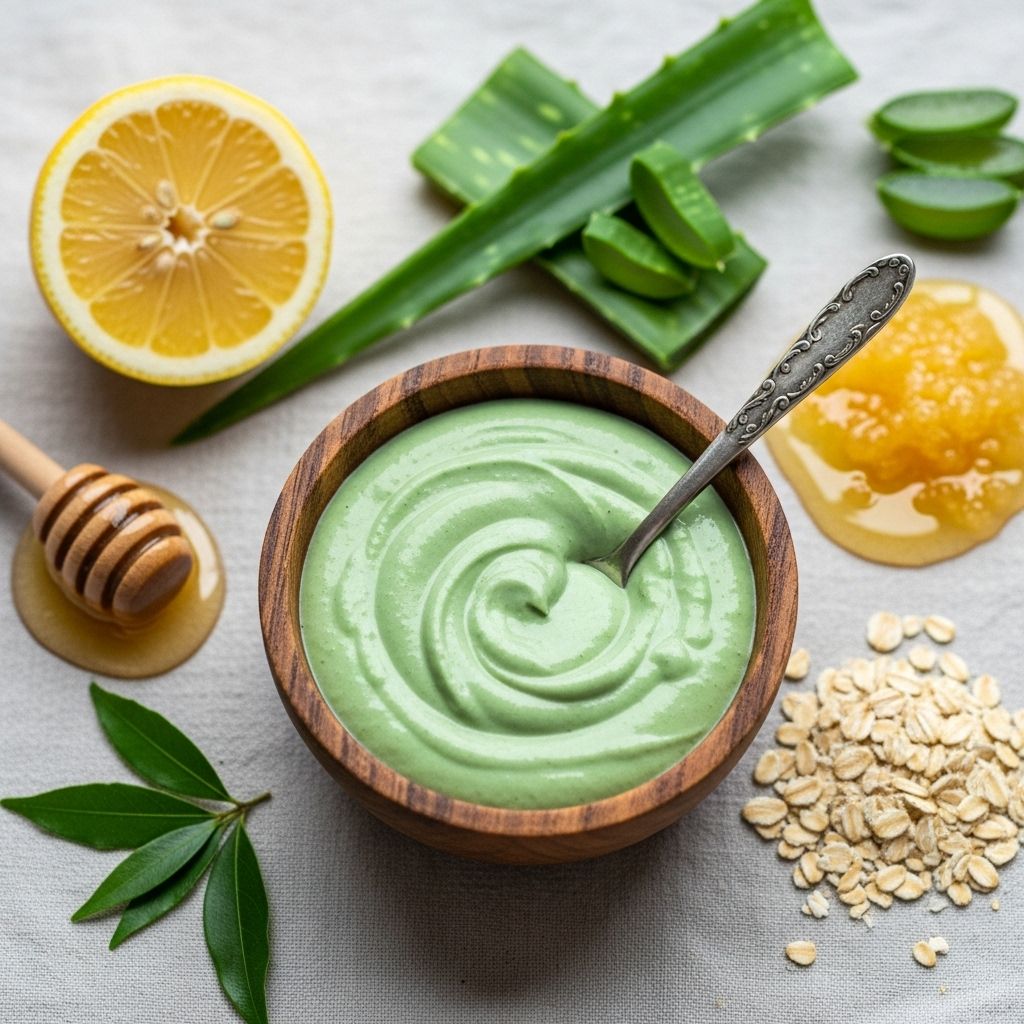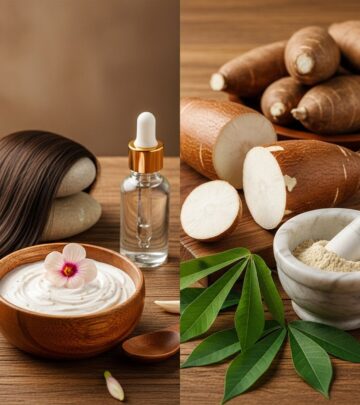Natural Remedies for Acne Scars: Effective Home Treatments
Discover powerful, science-backed natural remedies and at-home solutions to fade acne scars, restore skin health, and boost your confidence.

Acne is a widespread skin condition that affects people of all ages. While many succeed in clearing their breakouts, acne scars may persist, leading to concerns about appearance and self-esteem. Thankfully, a variety of natural remedies exist that can help minimize the look of these scars. This guide explores proven solutions—including oils, herbal remedies, lifestyle modifications, and preventive tips—to help you achieve smoother, healthier skin from the comfort of your own home.
Contents
- Understanding Acne Scars
- Why Choose Natural Remedies?
- Top Natural Remedies for Acne Scars
- Additional Home Remedies and Tips
- Precautions and Expert Advice
- Frequently Asked Questions (FAQs)
Understanding Acne Scars
Before exploring remedies, it’s essential to understand how acne scars form and why they persist. Acne scars result from the skin’s healing process after inflammation and blemishes. The body produces collagen to repair damaged tissue; too little collagen can result in depressed or pitted scars, while too much can lead to raised or hypertrophic scars.
Types of acne scars include:
- Atrophic scars: Sunken areas, including ice pick, boxcar, and rolling scars.
- Hypertrophic scars: Raised, thickened scars that sit above the skin’s surface.
- Post-inflammatory hyperpigmentation (PIH): Discoloration left after acne, more common in darker skin tones.
While professional treatments like laser therapy and microneedling exist, many prefer to try natural remedies first for gentle, affordable care.
Why Choose Natural Remedies?
Natural remedies are cost-effective, widely accessible, and gentle on the skin. They often carry a lower risk of side effects compared to aggressive chemical treatments.
Benefits include:
- Easy to incorporate into daily skincare routines
- Often multifunctional (hydrating, anti-inflammatory, brightening)
- Safe for most skin types when used properly
- Minimal downtime or irritation
However, natural remedies may require consistent use and patience, as improvements typically occur gradually over weeks or months.
Top Natural Remedies for Acne Scars
1. Black Seed Oil (Nigella sativa)
Black seed oil is derived from the seeds of a flowering plant native to Eastern Europe and the Middle East. Renowned for its anti-inflammatory, antibacterial, and antioxidant properties, it may:
- Reduce inflammation and redness
- Support faster wound healing
- Help fade hyperpigmentation and scars
Studies suggest black seed oil’s active compound, thymoquinone, plays a role in scar reduction and even overall skin health. Apply a small amount directly to scars after cleansing, 1–2 times daily.
2. Rosehip Seed Oil
Rosehip seed oil is extracted from the fruit and seeds of wild rose bushes. Packed with vitamin C, vitamin A (retinoid), and essential fatty acids, it offers:
- Improved skin texture and tone
- Collagen stimulation and enhanced elasticity
- Reduction in discoloration and old scars
Research (including studies on surgical scars) indicates that using rosehip oil twice daily can visibly fade scarring and support skin regeneration. Always patch test before first use.
3. Honey
Raw or medical-grade honey has been valued for centuries as a natural healer. It delivers potent:
- Antibacterial protection
- Wound-healing properties
- Moisturization and gentle exfoliation
How to use: Spread a thin layer of honey over the scarred area and leave it on for 20–30 minutes, or cover with a bandage overnight. Rinse off with lukewarm water. Repeat daily for best results.
4. Aloe Vera
Aloe vera gel is widely treasured for its soothing, anti-inflammatory, and restorative abilities. The clear gel from aloe leaves contains polysaccharides and antioxidants that can:
- Decrease inflammation and redness
- Enhance wound closure and tissue repair
- Hydrate and soften scarred skin
Apply pure aloe vera gel twice daily to clean skin for at least 30 minutes. Alternatively, leave it overnight for deeper hydration.
Summary Table: Core Natural Remedies
| Remedy | Main Benefits | How to Use |
|---|---|---|
| Black Seed Oil | Anti-inflammatory, fades scars | Massage directly onto scars, 1–2x daily |
| Rosehip Seed Oil | Boosts collagen, evens skin tone | Apply to scars, morning and night |
| Honey | Heals, reduces scarring | Spread on scars, cover for 30 min or overnight |
| Aloe Vera | Soothes, aids repair, hydrates | Layer gel on scars, leave 30 min or overnight |
Additional Home Remedies and Tips
Vitamin E Oil
Vitamin E is a popular antioxidant believed to repair skin and minimize scarring. To use, puncture a vitamin E capsule, apply the oil to the scar, and gently massage for several minutes. Let it absorb, then rinse as needed. Proceed with caution if you have sensitive skin, as vitamin E can cause irritation in some people.
Coconut Oil
With its rich fatty acid profile, coconut oil provides deep hydration and can support minor skin healing. Warm the oil slightly, massage into the scar for 10 minutes, and rinse off. While nourishing, coconut oil can be comedogenic (pore-clogging) for some; monitor your skin’s response.
Lemon or Lime Juice
The citric acid in lemon and lime juice has mild exfoliating and skin-brightening effects. Dab diluted juice onto the scar for a few minutes, then rinse thoroughly. Always use sunscreen afterward, as citrus juices increase sun sensitivity and may irritate sensitive skin.
Apple Cider Vinegar
This natural astringent helps balance pH, exfoliate, and disinfect. Mix 1 part apple cider vinegar with 2–3 parts water, dab onto scars, and rinse after a few minutes. Always moisturize post-use to prevent dryness or irritation.
Lavender Essential Oil
Lavender oil is known for its calming aroma, but when diluted with a carrier oil (like olive oil), it may also reduce inflammation and support wound recovery. Mix 2–3 drops into a tablespoon of carrier oil, massage onto scars, let sit, then rinse after 30 minutes.
Hydration and Nutrition
Healthy, well-hydrated skin recovers more efficiently. Drink plenty of water each day to keep skin elastic and support natural healing. Eat a balanced diet rich in vitamins C, E, and zinc to give your body the nutrients it needs for regeneration.
Precautions and Expert Advice
- Patch test all new products—natural or not—on a small area before full application.
- Avoid sun exposure on areas being treated for scars; use sunscreen daily to prevent darkening and protect healing tissue (especially after using citrus juices or exfoliants).
- Be patient and consistent. Natural remedies often deliver gradual rather than immediate improvements, particularly for older or deeper scars.
- If you experience signs of allergy or irritation (redness, itching, swelling), discontinue use and consult a dermatologist.
- For severe, deep, or long-standing scars, consult a skincare expert to discuss advanced therapies such as chemical peels, microneedling, or laser treatments.
Frequently Asked Questions (FAQs)
Q: How long does it take for natural remedies to show results on acne scars?
A: Most natural treatments require at least 4–8 weeks of consistent use before visible results appear. Improvement continues over time, with individual outcomes depending on scar depth, skin type, and remedy used.
Q: Are natural remedies effective for all types of acne scars?
A: Natural remedies often work best for mild to moderate superficial scars and discoloration but may be less effective on deep or extensive scarring. Significant or pitted scars frequently require professional treatments for optimal improvement.
Q: Can I use more than one remedy at a time?
A: Yes, but always patch test combinations first. Avoid layering multiple potent acids or essential oils to minimize irritation. Alternate remedies for best results or consult with a dermatologist for personalized advice.
Q: Do diet and lifestyle affect acne scar healing?
A: Yes. A balanced diet rich in antioxidants, hydration, regular exercise, and consistent sun protection support your skin’s natural ability to heal and renew.
Q: When should I see a dermatologist about my acne scars?
A: If scars are deep, extensive, or unresponsive to natural remedies after several months, consult a dermatologist for professional assessment and advanced treatment options.
Conclusion
Acne scars can be distressing, but many natural remedies offer hope for smoother, clearer skin. Black seed oil, rosehip seed oil, honey, aloe vera, and various home ingredients each provide benefits with minimal risk. Ensure consistent use, a holistic approach, and remember that even natural solutions require time and care. For the best results, partner your home treatments with sun protection, good hydration, and, when needed, guidance from a skincare professional.
Read full bio of medha deb











